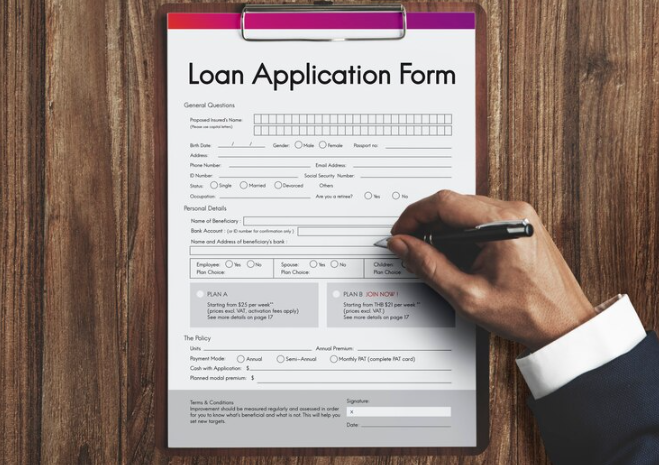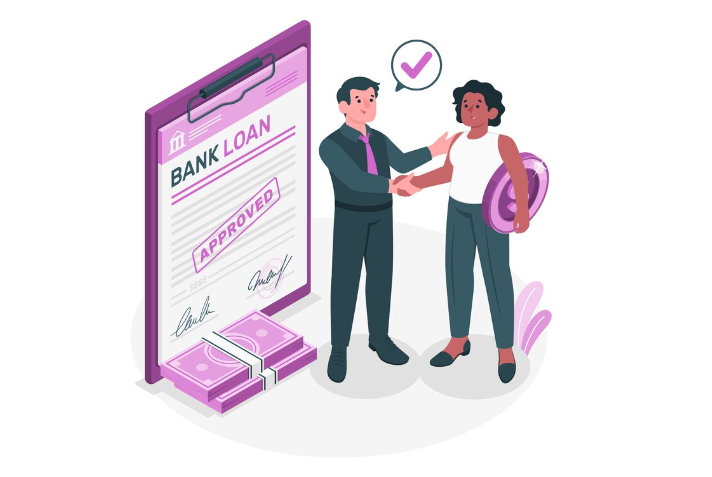Business loans are an important way for companies to get funding for things like equipment, property, or materials. Applying for a business loan can seem tricky, but we’re here to help break it down simply.
In this blog post, We’ll discuss how to get a business loan with an LLC or no money. We will also discuss different types of business loans along with steps to applying for loans. Let’s get started!
Also, read our latest guide on Everything You Need to Know about Business Plan
What is a Business Loan?
A business loan is money that a company can borrow to use for things like buying equipment, materials, or property to help the business grow. Lenders like banks offer business loans to established companies. The loans have interest rates and fixed terms for paying back the money.
Business owners must apply for loans and show they can afford the monthly payments. Loans let companies pay for expensive things they need without using all their own cash.
Common Business Loan Types

Business owners have several options when they need funds. Below are four common types of loans small companies pursue:
-
Term Loans
Term Loans allow borrowing a set amount for a fixed time, usually 1-7 years. You make equal monthly payments of both principal and interest. This is good for equipment and vehicles since you repay over the life of the assets.
-
Lines of Credit
Lines of credit from banks act similarly to credit cards for your business. They offer a set borrowing limit that can be tapped into whenever needed for fluctuating expenses.
The best part is you only pay interest on the actual amount taken, so it’s easy on the wallet. Whenever sales come in, just pay off what you borrowed to avoid fees. It’s a simple yet handy option for unpredictable cash flows.
-
SBA Loans
The Small Business Administration helps with SBA Loans by guaranteeing part of the amount. Banks see these as lower risk, so rates are lower, too. Use SBA 7(a) or 504 Loans for real estate or equipment purchases.
-
Merchant Cash Advances
Merchant Cash Advances give you money upfront in exchange for a percentage of credit and debit sales over time. It’s simpler than a traditional loan but costs more long-run. Consider it if you’re new and can’t get other funding. Communication is key with any option.
Steps to Applying for the Loan

There are several important steps business owners must take when seeking to obtain a loan to finance their operations. Properly following this application process is key to securing the needed funds.
-
Submitting Your Loan Application
When your research is complete and documentation is in order, it’s time to apply for the business loan formally. You’ll provide details about the company, the loan request, and your credit to the lender.
It’s important to be thorough yet clear in the application to demonstrate your ability to repay the loan and that the request meets their lending criteria. This step is crucial to moving the process forward toward an underwriting decision.
-
The Loan Approval Process
When a small business applies for a loan, the lender has an important task to review the request. They will examine the company’s finances, credit scores, assets offered as collateral, how the money will be used, and ability to repay as scheduled.
All of this helps the lender decide in a careful way if the loan application can be accepted. It’s wise for businesses to share complete and accurate information during this stage so the lender can make the best choice. Clear communication helps the process go smoothly.
-
Loan Terms and Repayment Details
Once a small business loan is accepted, the lender spells out important information in legal documents. These outline the amount borrowed, the cost of credit as the interest rate, payment amounts, timeline, and any assets pledged as security.
Carefully reading the full agreement lets borrowers know their duties, such as sending payments on scheduled dates. Meeting the agreed-upon terms keeps the company in a good relationship with the lender and makes loan money available if needed again. Clear rules benefit both sides.
How To Get a Business Loan With Bad Credit

Here are some tips for entrepreneurs seeking loans when short on funds:
- Develop a detailed business plan showing your idea is viable. Include market research and sales forecasts.
- Highlight your background and why you’re qualified. Lenders want confident owners who will put in long hours.
- Ask about microloans or programs for disadvantaged groups. These may require less upfront capital.
- Consider securing a co-signer who has assets or credit to pledge. A mentor or supplier willing to co-sign can strengthen an application.
- Be prepared to provide personal financial records, too. Lenders review character and ability to repay personally if the business struggles. Creativity and determination can open doors when cash is tight.
How to Get a Business Loan with an LLC
Below are some tips for LLC owners seeking loans:
- File all necessary business forms and tax returns to prove your company is legitimate and in good legal standing.
- Supply financial statements for the LLC, including profit/loss reports and balance sheets. Lenders want to see a history of responsible money management.
- Personal credit scores still matter, even with an LLC. Good personal credit shows reliability in handling money.
- Consider having the business and owners co-sign the loan. This shares responsibility and shows commitment to both succeed together.
- Research SBA and microloan options. Many have programs tailored to new LLCs and small businesses. Additional guarantees make financing more accessible.
- Explain your growth plans clearly. Lenders like to aid expansion when they understand the vision and potential return. An LLC is a valid legal structure, but patience may be needed during the application.
Tips for a Successful Business Loan Application

Following some best practices can help boost your chances of securing the funds needed to grow your company.
Building Relationships with Lenders
Creating strong connections with potential lenders well before applying for a loan is highly beneficial. Reach out to banks, introduce your business idea, and learn about their programs. Ask questions and look for opportunities to network face-to-face.
Establishing yourself as a trustworthy client over time makes approval more likely when you’re ready to submit your formal application package.
Having Collateral Ready
While collateral is not always mandatory, its availability can significantly strengthen a business loan application. Common types of collateral include equipment, vehicles, real estate, and accounts receivable.
Borrowers should identify what assets they own that could be pledged. Obtaining valuations in advance shows lenders you’ve prepared for this process. Being ready to discuss collateral signals confidence and seriousness of purpose.
Following Up After Applying
Once a business submits its loan request, it’s a good idea to follow up with the lender within a reasonable timeframe. A quick phone call or email shows continued interest in their decision. If more information is needed, applicants can provide it promptly to keep the process moving.
Following up also opens the door for questions and keeping the business top-of-mind. Polite, professional communication after applying builds rapport and reassures lenders of the borrower’s commitment and organization.





0 thoughts on “How To Get a Business Loan – Proven Steps Explained”